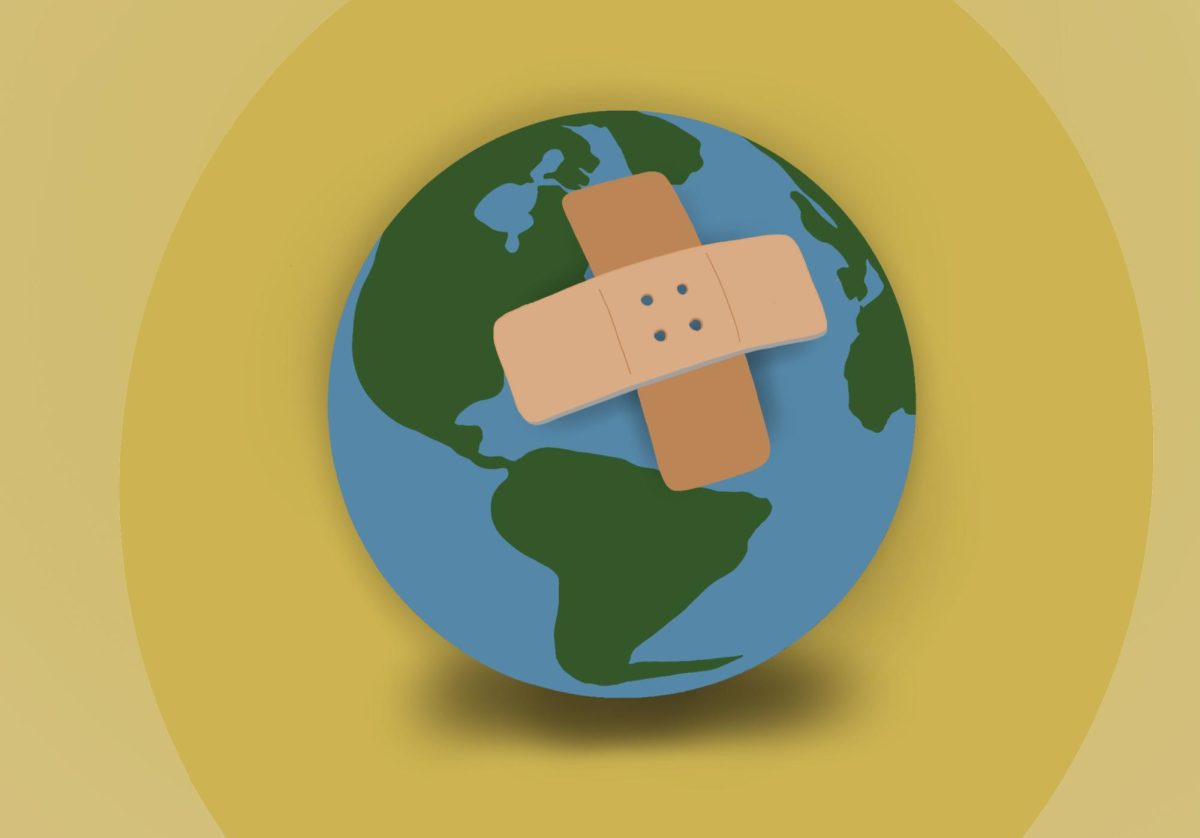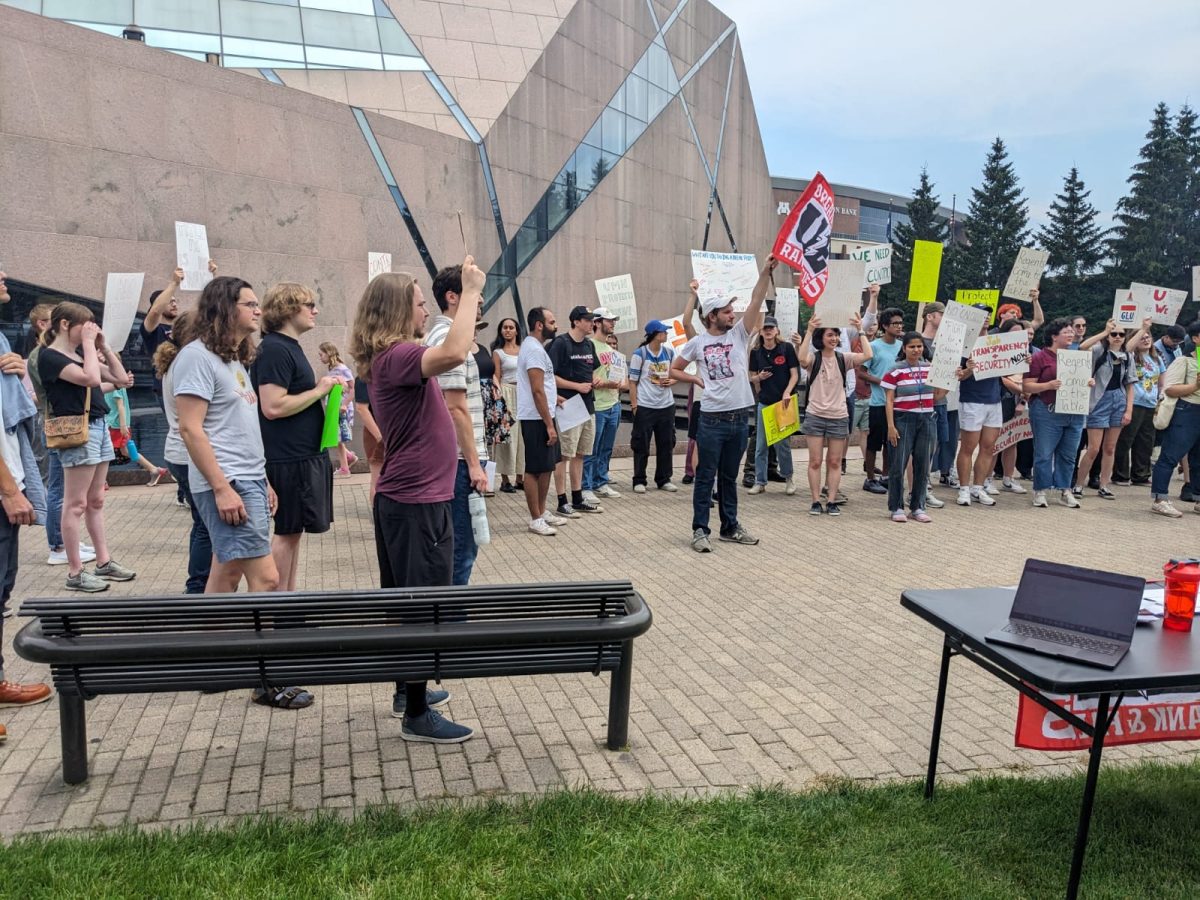Editor’s note: This article discusses sexual harassment. If you or anyone you know has experienced sexual harassment, the Aurora Center’s 24-hour helpline can be reached at (612) 626-9111.
Reporters of sexual assault who are in possession of or under the influence of illegal substances can now contact emergency authorities to seek assistance without fear of legal consequences, according to a new provision in the Public Safety Omnibus bill signed by Gov. Tim Walz on June 30.
Members of the Minnesota Student Association (MSA) began advocating for the provision to be added to law in 2018.
The bill states that the first person to call 911 and seek help for an incident of sexual assault will not be charged or prosecuted even if they are under the influence of illegal substances. To be granted immunity, the person calling must stay at the scene until emergency help arrives and provide the name and contact of the person in need of assistance.
The provision applies to any incidents that occur on or after Aug. 1.
“Already so many young women and men have been victim of sexual assault,” said Rep. Heather Edelson (DFL-Edina), the chief author of the bill. “If you remove the barrier of, ‘Listen, you are not going to get in trouble and we want to hold that person accountable. In fact, we need to do that because that person could create more victims.’ If we really get that out there, this small piece of legislation could have a big impact.”
Student advocacy
University of Minnesota students have been working to pass a bill addressing amnesty for sexual assault victims for four years according to Sam Parmekar, the outgoing state government coordinator for MSA.
MSA consulted with stakeholders, such as the Aurora Center for Advocacy & Education and the University Police Department, to gather additional opinions and support for the bill.
Even with executive board changes, the COVID-19 pandemic and other legislative factors slowing its passage, MSA has continued to advocate for the bill.
MSA leadership has been advocating for legislation to protect students in emergency medical situations for almost a decade, including the Medical Amnesty Law in 2013, Parmekar said.
“That bill, essentially, created the concept of medical amnesty where if someone is experiencing a medical emergency as a result of drug overdose, alcohol poisoning or something like that, they could contact emergency services or someone could contact emergency services on their behalf and they would receive immunity from possession, consumption or sharing of those substances,” Parmekar said.
However, the bill did not apply to individuals that needed emergency support due to a sexual assault.
“Four years ago, [MSA] brought forward this bill to close that loophole and make sure that those protections also applied to individuals who had been sexually assaulted,” Parmekar said.
The students worked to gather bipartisan support for the bill, according to Parmekar. Ultimately, they were able to earn the DFL majority votes in the House and the Republican majority in the Senate in order to include the provision in the final Public Safety Omnibus bill.
All universities in Minnesota are prohibited from academically punishing students if they report sexual assault and illegal drugs or alcohol are found, Parmekar said. However, before this provision, there was no statewide protection from criminal consequences.
The bill’s significance
Many young adults do not report sexual assaults when alcohol or drugs are involved out of fear of the legal consequences related to the substances.
According to a 2019 survey by the AAU Climate Survey on Sexual Assault and Sexual Misconduct, 54% of women who experienced a sexual assault and “reported penetration did not contact a program or resource because alcohol was involved.”
“There is obviously quite a stigma about being believed if you are assaulted under the influence. But a large part of that is the perception that, if I was drinking or I was doing drugs and I admit that to someone in authority, I am going to get in trouble,” Parmekar said. “I think there are students who really feel fear for the academic consequences, or fear that they might lose their job or scholarship. The whole reason we want to bring this forward is that we do not want anyone to ever have to make that calculation.”
Women ages 18 to 24 are also at a higher risk for sexual assault, according to the Rape, Abuse, & Incest National Network. Women attending college are at an even higher risk; they are three times as likely to experience sexual assault than women in general, and 50% of sexual assaults happen at the beginning of the school year from August to November, according to the Association of American Universities.
This bill is particularly important in light of the Minnesota Supreme Court’s recent decision involving the definition of a “mentally incapacitated” person, Edelson said.
In the decision, the court ruled that a victim of sexual assault did not meet the requirements to be considered “mentally incapacitated” and unable to consent to sex because she had voluntarily consumed alcohol.
Revisions in the Public Safety Omnibus bill closed Minnesota’s “intoxication loophole,” Edelson said. Now, the definition of “mentally incapacitated” includes a person intoxicated “to a degree that renders them incapable of consenting or incapable of appreciating, understanding or controlling the person’s conduct.”
“We want victims to know, and we want people reporting an assault to know, that assault outweighs any possible underage drug use or underage alcohol use that could possibly be happening,” Edelson said. “Regardless of whether or not you have consumed alcohol or drugs, that’s not a free pass for you to be sexually assaulted. And that is the key: Using drugs does not mean somebody can violate you, and we want people to know that.”





























Richard Turnbull
Aug 20, 2021 at 5:03 pm
I am still amazed anyone posts what amounts to sleazy fantasies, as if it makes a cogent, lucid point about the legal reform reported in the article.
Richard Turnbull
Aug 19, 2021 at 5:00 pm
Thanks for posting the kind of reasoning that only occurs to people headed for some kind of karmic disaster, I just hope no girls or women are victimized as part of it.
Hardly anything is less “cool” than imaginary scenarios like you outline, “seek help,” and study the benefits of limiting meat in your diet, while you’re at it.
Cf. Gorillas.
Meat Eater
Aug 16, 2021 at 4:56 pm
it sounds like if I supply booze to an underage girl so my underage younger brother can take advantage of her, neither of us will get in trouble if I call police and tell them some slut got my brother drunk and screwed him, and he whines like a baby he lost his virginity to her
cOOl
Rusty
Aug 3, 2021 at 11:24 am
Well, yes and maybe,
Richard Turnbull
Aug 2, 2021 at 11:24 am
What part of the statute’s change strikes you as requiring anything that would make the grant of amnesty ambiguous, or subject someone who provided an illegal substance to pressure that would undercut their grant of amnesty statewide? I don’t see that in the statute or the article.
It looks like it simply allows a rape victim, or sexual assault victim , report the crime irrespective of their use of illegal drugs, or being underage and intoxicated, and applies to someone who supplied the drugs or alcohol.
That way, the perp cannot skate on to exploit more victims simply because the currect victim or the people involved in the substance/alcohol provisioning to that person, are afraid they will get busted.
Richard Turnbull
Aug 2, 2021 at 10:18 am
In a theocracy, sure. In a democratic republic with our First Amendment dismissal of any “establishment of religion,” that is verboten, senor.
What’s next, barring the teaching of Neo-Darwinian evolution theory in biology classes? Disallowing any use of “Critical Race Theory” because some sociologically-defined “races” contain a subset of aggreived snowflakes who think the theory invokes transhistorical collective guilt and singles them out as culpable for actions taken by people they never met, hundreds of years befor they were born?
I could go on like this for hours but the US women’s soccer team is playing Canada in the Tokyo Olympics and I have SlingTV, but by all means feel free to refute my tendentious questions, “Rusty.”
Richard Turnbull
Aug 2, 2021 at 10:11 am
The Perfect is the Enemy of the Good.
Rusty
Aug 1, 2021 at 6:56 pm
Nothing about putting the Ten Commandments into the Classrooms and the Court Rooms?
brn
Aug 1, 2021 at 12:54 pm
You just jumped straight on the offense didn’t you? Nice use of bold, also.
I’m OK with the concept, but the article wasn’t specific about what kinds of offenses amnesty would be granted for. It’s also interesting that it’s only granted if someone is named when responders first arrive. Almost seems like they’re being pressured.
Richard Turnbull
Aug 1, 2021 at 10:31 am
Long overdue. Hopefully no trolls show up to start howling and engaging in victim blaming, “slut shaming,” and the rest of the usual appalling woman-hating nonsense enabled by all sorts of people who should know better, but don’t.